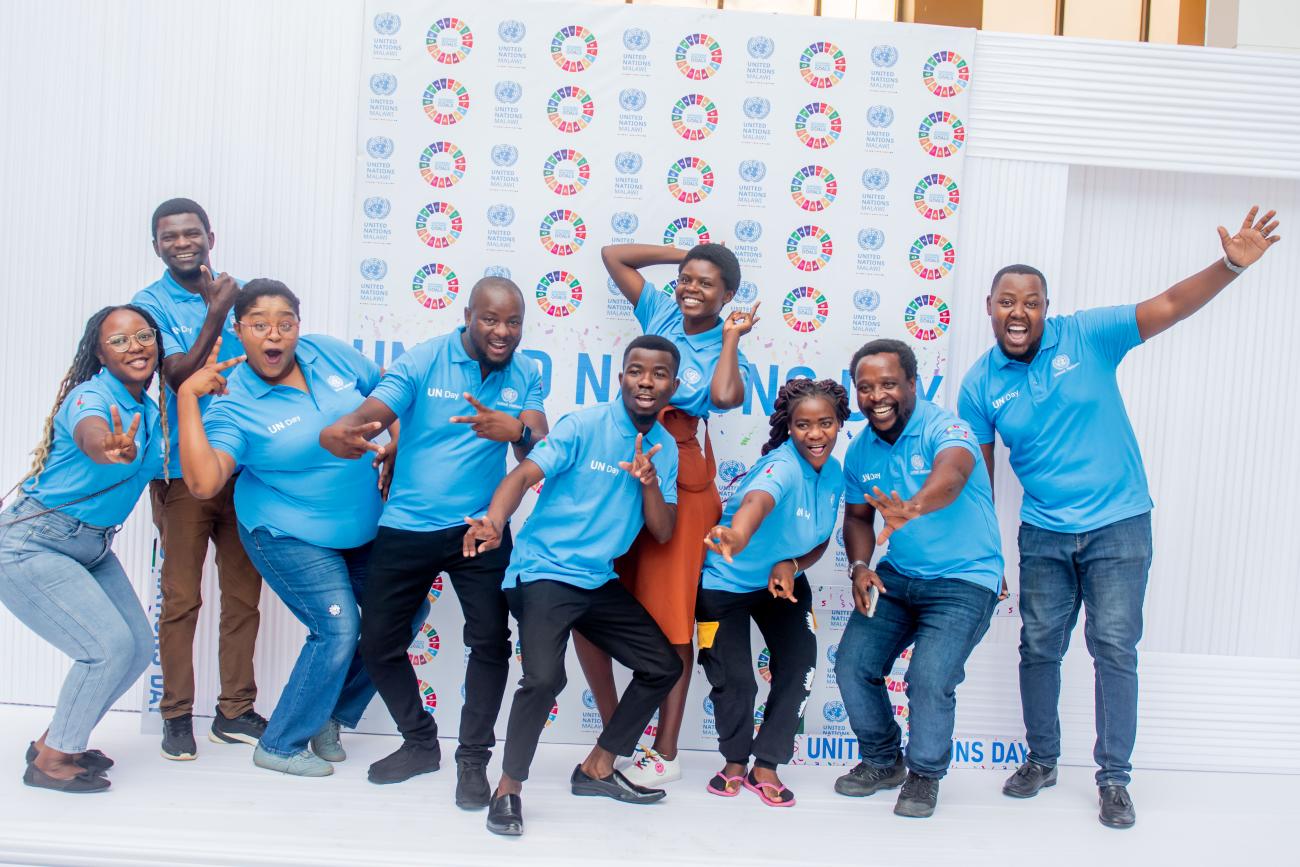Towards the Future: Youth Leadership and UN 2.0 in Malawi

21st century problems require 21st century solutions. They also need next-generation trailblazers.
Around the world, we are witnessing how the cascading crises of economic downturn, climate disasters, heightened geopolitical tensions and mis- and dis-information are playing out in the battleground of young people’s lives.
Today’s youth – over 1.8 billion of the population with a majority living in developing countries – are vocal and unwavering in their demands for basic rights and inclusion. They want a transformed and sustainable world, seeking to lead the movement and reap its benefits. With progress lagging, the achievement of the 2030 Agenda will be impossible without the full and meaningful participation of young people. The United Nations can play a critical role in leveraging the fresh perspectives, innovative ideas and deep commitment of young people in effective ways.
This starts with a cultural shift, as envisioned by UN 2.0, the organization’s vision for a reinvigorated and impactful UN development system. As the UN Resident Coordinator in Malawi, I have seen first-hand how young people in the country are challenging ‘business as usual’.
Their passion, energy and idealism, if effectively harnessed by the UN and international organizations, can inspire creativity and foster a culture of innovation and continuous improvement. Our responsibility is to actively engage, listen to and actively enable their strengths, ensuring that we are partners who are relevant and fit-for-purpose for the future.
Listening to youth voices
Over 51 per cent of Malawi’s population is 18 years and younger. Malawi's classification as a Least Developed Country (LDC) introduces unique challenges for its youth. They confront a range of obstacles, including high rates of unemployment and underemployment, widespread poverty and economic disenfranchisement, limited access to education and skill development, prevalent issues like teen pregnancies and early marriages, disparities between rural and urban areas, and the adverse effects of climate change.
Against this background, our UN Sustainable Development Cooperation Framework (UNSDCF) 2024 – 2028 prioritized young people in its design and content, ensuring that policies and investments in education, skills development, decent jobs, entrepreneurship, health and more, directly address the needs of young people.
In doing so, we employed digital platforms including social media to engage young people and collect their views on the work of the UN and the priorities that they wanted to see the UN focus on.).. Youth participation, representation and empowerment, including an emphasis on education, entrepreneurship and vocational skills development, have been given clear focus in this Cooperation Framework.
A number of youth-focused initiatives and programmes led by the UN team under this framework are helping advance home-grown solutions to local and national challenges.
Championing youth-led solutions
For example, the UN Development Programme (UNDP) is partnering with the Malawi University of Business and Applied Sciences to launch the University Innovation Pod (UniPod) under the ‘Timbuktoo initiative’. UniPOD is a $2 million state-of-the-art national innovation facility for young people to nurture talent, sharpen youth entrepreneurship skills, and advance tech industries to drive national development.
As a result, two remarkable young women innovators, have emerged as pioneers in Malawi's innovation landscape. Sally Mwayi Changaya, a fifth-year biomedical engineering student developed a medical drip monitor that utilizes locally available materials for low-resource settings. Sonia Kachale, a graduate mining engineer has developed a “Mi-money application” that integrates all Malawian banks, mobile money services, and international visa-enabled banks for seamless, real-time, and affordable inter-institutional transactions.
Forging strong partnerships with youth-led organizations for civic action, the UN country team through UNDP, International Organization of Migration and UN Population Fund (UNFPA) has also been working through the UN Peacebuilding Fund to include youth in District Peace Committees, where they play an active role in peace building and conflict prevention.
An UNFPA partnership with youth-led organizations has contributed to increased reporting of gender-based violence cases as evidenced from 381 cases reported in 2023 when compared to 250 in 2022. Additionally, UNDP's initiatives like the Malawi Innovation Challenge Fund provide resources for young entrepreneurs, fostering innovative business models and economic diversification.
The UN also recently rolled out the “We the People” conversations designed to bolster interactions with young people and integrate their diverse perspectives across various dimensions of national development.
Doubling down on youth empowerment and digital innovation
Looking at how the UN can leverage the digital revolution for youth participation and national development, and vice-versa, a joint effort of ILO, IOM, UNDP, UNICEF, UNHCR, UNFPA, and UNESCO is currently underway with an innovation landscape analysis, in collaboration with the Department of Innovation in the Office of the President and Cabinet. This initiative is a step towards fostering an environment where innovative solutions can flourish, be scaled, and contribute significantly to achieving the Sustainable Development Goals. Through this, the UN in Malawi is tapping into the unique strengths and perspectives of youth to empower them as agents of change and digital influencers, amplifying their voices, talents and social activism.
Under the UN 2.0 framework, UN support in Malawi better aligns with the SDGs and the national priorities, optimizing data-driven decision-making, and fostering innovation.
Looking ahead
For the UN team in Malawi, youth represent a catalyst for change, their energy is transforming how we work and how we support government, civil society and communities. This focus is helping us adopt a forward-thinking culture, cultivate innovative partnerships and embrace new perspectives. As the country stands at a critical juncture, guided by the aspirations of long-term prosperity in its Malawi 2063 plan, this is an opportunity. To do development differently. To do business differently. At the UN in Malawi, we stand ready for the next stage.
This blog was written by UN Resident Coordinator in Malawi Rebecca Adda-Dontoh. For more information about the UN's work in Malawi, please visit malawi.un.org













